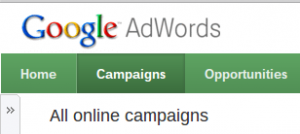Exactly How Does PPC Work? 12 Mar 2013
Believe it or not, there are still lots of advertisers out there that still do not use pay per click advertising. The reasons will vary from one advertiser  to another. For example, one advertiser may find he gets better results with banner advertising while another advertiser may find it too much of a task to learn and become acquainted with PPC. This is a problem with PPC. People still don’t know exactly how PPC works and because of this, it turns them away from using one of the best advertising programs ever. Well, threat not. Here’s a brief explanation about exactly how PPC works.
to another. For example, one advertiser may find he gets better results with banner advertising while another advertiser may find it too much of a task to learn and become acquainted with PPC. This is a problem with PPC. People still don’t know exactly how PPC works and because of this, it turns them away from using one of the best advertising programs ever. Well, threat not. Here’s a brief explanation about exactly how PPC works.
PPC starts with the advertiser who will sign up with a program such as Adwords. From here, they will create their PPC campaign. This will include some of the following elements :
- Chosen Keywords – These are keywords the advertiser chooses which s/he thinks will help relate the ‘right’ traffic to her/his adverts.
- CPC – The maximum price per click on an advert.
- Advert – Although there is the option to create an image advert, most advertisers stick to making the text advert.
- Landing page – This is the page which web users will end up on after clicking on the advertiser’s advert. The idea of this page is to bring in the conversion.
There are some more elements the advertiser has to think about too but to keep things simple, this is the core-like structure to a PPC campaign.
Once the campaign is up and running, the campaign will be fighting against other advertisers for ad placement with contextual traffic. The ad locations of PPC will vary: you could have an advert displayed on a publisher’s website of Adsense or simply have your advert placed at the top or to the right of Google’s search results. When trying to get ad placement on a website or search results when a web user searches for content or is on content with your ‘Chosen Keywords‘, PPC will take into consideration your CPC. If your CPC is higher than other advertisers, you have outbid them for that ad spot and will have your advert appear there. If your CPC isn’t higher, then you will have to wait until it is for your campaign to gain ad impressions.
We have now got to the part where you have your advert displayed on Google search results or a publisher website. If you made your text advert right and chosen the right keywords, you should find that you gain lots of clicks with not much impressions (your CTR will be high which is good). Once the web user has clicked on your advert, you will pay the CPC you used to gain you that ad placement for that click.
After clicking on the advert, the web user will move to your landing page. This is the last step of your campaign and can also be deemed the most important too. Here, your objective is to make sure the web user does what you want. By this, if you want a sale, you will make sure the web user buys something. If you want more Twitter followers, you will make sure the web user follows you (and so on…). The way PPC is structured makes sure that you are gaining the most contextual traffic to your landing page for the highest conversion rate. This is why so many people use PPC nowadays.
Will Green
Will created Ask Will Online back in 2010 to help students revise and bloggers make money developing himself into an expert in PPC, blogging SEO, and online marketing. He now runs others websites such as Poem Analysis, Book Analysis, and Ocean Info. You can follow him @willGreeny.
|
Recommended posts
|

